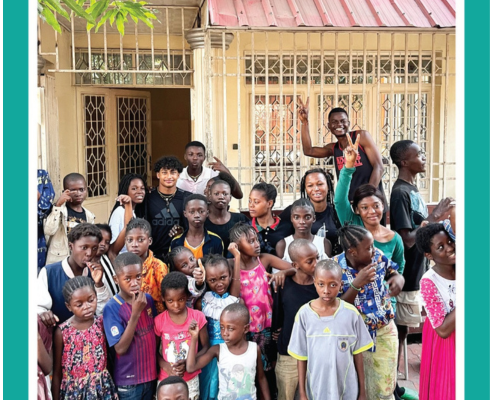Student Voice
Student voice, and the engagement of it at GEMS Wellington International School, is vital to the ongoing growth of the school, and provides the drive and continuation of our pursuit for excellence.
There is a naivety in thinking that student voice is simply allowing students to share their opinion. While this is a factor, of course, there are several ways in which this ‘voice’ can be expressed. In recent years there has been a significant cultural shift in the way that learners engage with their own outcomes in the classroom and this has led to the following: “educators encourage learners to build more capacity to initiate, manage and maintain their own learning”. (Bray, B. and McClaskey, K. “Learner Voice and Choice Leads to Engagement.” Centre for Digital Education.) This therefore allows, through successful personalisation, as mentioned in a previous article, students to voice their own preferences, and make their own choices around how they are then accountable to their outcomes and learning at WIS.
The guiding principles of successful student voice are continuously discussed and revised. One model that illustrates the variety of methods in place to support and drive student voice opportunities at WIS is the ‘Continuum of Voice’ model, created by Eric Toshalis and Michael J. Nakkula from their report “Motivation, Engagement, and Student Voice”, stating that “learner voice demonstrates a commitment to the facilitation of agency and to the creation of policies, practices, and programs that revolve around the learners’ interests and needs”. The model is based on three methods in which student voice is used at WIS: ‘teacher-driven,’ ‘learner-centred’, and ‘learner driven.’

Each element of the above is visible in so many of the opportunities we have embedded in the lives of our students at WIS in the anticipation that they refine their ability to share opinion, lead responsibly, activate ideas and form intellectual partnerships, in preparation for life after they leave us in Sixth Form. “Teachers and learners can work together to develop a partnership that supports the learner building confidence, self-awareness, and the ability to self-advocate for agency”. (Cushman, K. and Cervone, B. “Student and Youth Voice: Asking, Listening, and Taking Action.) These opportunities are open to all and personalised, either in learning, or from a pastoral capacity.
An example of excellent student voice in action lies with our current Student Senior Leadership Team. A process effectively implemented at WIS, our core team is represented by 12 members of our Post 16 cohort within our Upper School, a model we are emulating in our Middle and Lower Schools. Compromised of Head Girl, Head Boy and Deputies, Executive Leaders, House Captains and Inter-Club Council Coordinator, the opportunities for this team, for a collective student voice, are driven by students who are guides for change and accepting of the responsibility that comes from such roles. From Social Media ‘take-overs’ to working with Executive Leadership members to revise elements of student culture and experience does not come without challenge. However, by giving students these opportunities we actively promote the notion of ‘lifelong learners’; our guidance provides ‘learner-driven’ outcomes and our students are accountable for their decisions.
Another example of effective student voice at WIS, with a more ‘learner-centred’ focus comes from the regular participation and partnership within classrooms and across the school. Through a variety of EEE and working groups, students have active decision making roles as well as developing effective collaborative behaviours. Groups such as our ‘STEAM Sisters’, our Eco-Club, and our English Council, host events with our students at the forefront of the decision making processes. We have all participated in a number of whole school events, either face to face or, more recently, online, that have been wholly learner centred and student driven. Days such as Transition and Theme Days, ‘Spooky Literature Festival’ celebrations within the Lower School created and launched by the English Council, MUN experiences, and IB and GCSE taster days have all offered opportunities for our students to not only be at the centre of the decision making process, but be the drivers and collective voice for excellent student experience.
The above events and experiences are a small example of the quality opportunities and contributions all of our students can make to theirs, and the lives of others, at WIS. Student voice was once considered a survey, or an opinion, and while this is still very much the case, student voice goes beyond expression and consultation. Student voice is loud at WIS; it does not move quietly along the corridors or within the classrooms. It is an active, vibrant, and ever-evolving aspect of school life that, as teachers and leaders, we drive, not only for the good of the school, but for the good of the whole child and their identity. In a world that needs people with a strong sense of self-advocacy, WIS will continue to provide the tools today for the leading voices of tomorrow.





